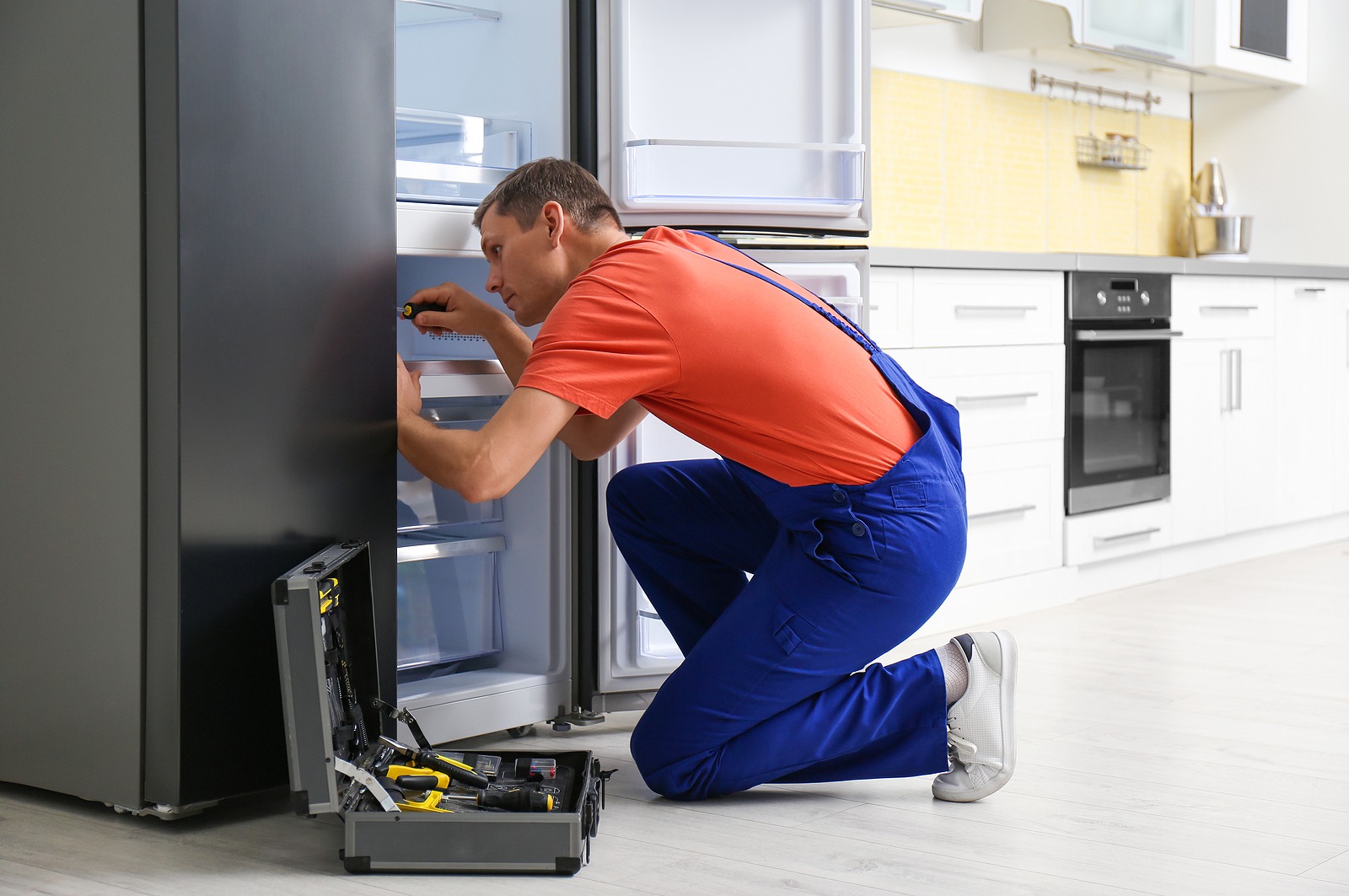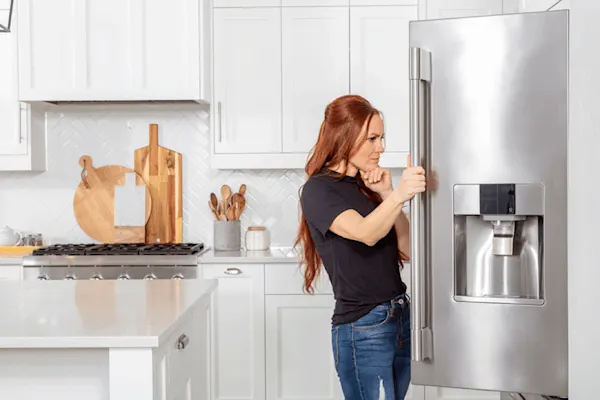7 Clues Your Dryer Needs Immediate Service – Washer dryer repair service Dependable Refrigeration
7 Clues Your Dryer Needs Immediate Service – Washer dryer repair service Dependable Refrigeration
Blog Article
The Ultimate Guide to Recognizing Device Repair at Home
When your refrigerator quits cooling down or your stove declines to heat, it can feel frustrating. Understanding device repair work in the house can save you money and time. You'll find out to recognize signs and symptoms, use crucial devices, and comply with an organized troubleshooting process. Before you start, there are important safety precautions you require to take into account. What are one of the most typical problems, and just how can you fix them? Allow's check out the basics.
Typical Device Problems and Their Symptoms
When your home appliances begin breaking down, it's important to recognize the indications at an early stage. Disregarding them can bring about bigger issues and pricey repair services. If your fridge isn't cooling down appropriately, you may discover warm places or condensation developing. This might indicate a stopping working compressor or a blocked vent.Your dishwasher may reveal problems through unclean recipes or unusual noises during cycles. If you listen to grinding or clanking, it's time to investigate.A washing maker that will not rotate or drain pipes can leave you with soggy laundry, suggesting a clogged up drainpipe or a malfunctioning pump.Lastly, if your oven's temperature appears off or it takes forever to pre-heat, you might be managing a malfunctioning thermostat. By staying sharp to these signs, you can address problems before they rise right into significant repair work.
Essential Tools for Device Repair Service
When you're dealing with device fixings at home, having the right devices is necessary. Basic hand devices like screwdrivers and pliers will certainly aid you disassemble and fix various devices, while electric screening gadgets ensure you're working securely with wiring. Let's discuss what you require to get going on your fixing trip.
Standard Hand Tools
Having the right tools is essential for effective appliance fixing in your home. Beginning with a trustworthy screwdriver set, including both flathead and Phillips types, as screws prevail in appliance setting up. Pliers are likewise important; they aid with gripping, twisting, and cutting wires or small components. A pair of needle-nose pliers can get to limited areas conveniently. You'll require a good flexible wrench for tightening or loosening nuts and bolts. An utility blade comes in handy for puncturing product packaging or insulation. Don't neglect a durable workbench or surface area to securely arrange your tools and components. With these fundamental hand devices, you'll be well-prepared to deal with most device repairs that come your method.
Electrical Screening Tools
Together with fundamental hand tools, electric screening devices play a vital duty in device repair service. These tools aid you diagnose electrical problems and guarantee home appliances function safely. A multimeter is crucial; it gauges voltage, existing, and resistance, permitting you to pinpoint troubles quickly. A non-contact voltage tester is another must-have, letting you spot live wires without making direct contact, improving your security. Secure meters are great for gauging current circulation in wires without disconnecting them, conserving you time and effort. In addition, circuit testers can swiftly inspect if electrical outlets are working appropriately. By making use of these tools, you'll simplify your troubleshooting process and improve your repair abilities, making appliance upkeep a lot easier.
Step-by-Step Guide to Diagnosing Device Issues
When your home appliance acts up, it can be frustrating, however identifying the concern doesn't have to be overwhelming. You'll discover to determine typical problems and use effective repairing methods. Allow's walk via the actions to get your device back in working order.
Typical Home Appliance Issues

Fixing Techniques Clarified

Repairing Major Kitchen Appliances: A Closer Look
Have you ever questioned how to deal with usual concerns with your kitchen area home appliances? Repairing significant cooking area home appliances like refrigerators, ovens, and dishwashers can be much easier than you believe. Begin by determining the problem-- whether it's a fridge not cooling or a stove that won't heat. Commonly, a simple reset or examining the power source can solve the issue.For fridges, clean the condenser coils and check the door seals. If your stove's not heating, check the home heating aspect and thermostat. Dish washers may simply require a clean filter or a reset to obtain them back in action. Always unplug the home appliance before diving into repairs to assure your safety.Don' t fail to remember to get in touch with the individual handbook for details repairing suggestions associated with your design. With a little patience and the right tools, you can confidently tackle Read Full Article appliance repairs and conserve cash while doing so!

Troubleshooting Laundry Appliances: Tips and Techniques
When your washing home appliances begin breaking down, it can feel frustrating, but troubleshooting them does not have to be a trouble. Begin by checking the power supply. Confirm the appliance is connected in and the electrical outlet is functioning. Next off, check the door or lid button; a damaged button can prevent the maker from operating.For washing machines, if it's not spinning, examine for unbalanced loads. Rearranging the clothing might solve the concern. If your dryer isn't home heating, tidy the dust filter and inspect the vent for blockages.Listen for uncommon sounds; they can suggest a problem. If your home appliance is dripping, examine the hose pipes for cracks or loosened links. File any kind of mistake codes presented on electronic displays, as they can direct you in recognizing the problem. Seek advice from the individual guidebook for specific repairing tips related to your design.
Safety Preventative Measures to Take Throughout Repairs
Before you start any type of home appliance repair work, it's essential to prioritize safety and security to stop accidents or injuries. Initially, unplug the home appliance or transform off the circuit breaker to ensure no power reaches it while you function. Use insulated tools to reduce the risk of electrical shock. Use safety goggles and gloves to secure yourself from sharp edges or debris (Dependable Refrigeration & Appliance Repair Service Washer repair near me).Make particular your work area is tidy and well-lit, so you can see what you're doing. Maintain children and pet dogs away from the area to stay clear of interruptions and possible dangers. If you're managing gas home appliances, be extra careful; look for leakages prior to proceeding.Take your time, and do article source not rush via repair work. If you really feel unsure about any action, it's much better to pause and research study than to guess. Complying with these safety measures will certainly assist produce a more secure environment for your DIY appliance repair service task
When to Call a Professional for Help
Just how do you recognize if it's time to contact a professional for home appliance fixings? If you have actually tried standard troubleshooting without success, it's a clear indicator. For example, if your appliance still won't start or shows uncommon sounds after resetting it, do not hesitate to seek professional help.When you observe leakages, smoke, or burning scents, focus on safety and security and call a pro quickly. These problems can cause even more significant damage or position dangers to your home.Also, if your home appliance is under warranty, getting in touch with a professional is often the best route. They can guarantee that repair work will not void your service warranty, saving you cash in the lengthy run.Finally, if you're uncertain or uncomfortable with intricate repair work, it's smart to leave it to the experts. Bear in mind, taking on challenging problems without the ideal proficiency can cause costly blunders. Trust fund a professional when in doubt!
Frequently Asked Inquiries
How Can I Avoid Home Appliance Issues in the Future?
To avoid appliance issues in the future, you must perform routine maintenance, check for wear and tear, tidy filters, and avoid overloading. Remaining aggressive will help expand their life-span and keep them running smoothly.
What Are the Many Common Do It Yourself Device Fixing Mistakes?
You might overlook security preventative measures, skip repairing steps, or use inaccurate devices when attempting do it yourself appliance repair services. Hurrying the process or ignoring maker standards can cause more significant problems and costly blunders. Remain client and notified!
Just how Do I Know if a Component Demands Replacement?
You can tell if a component requires replacement by looking for unusual noises, leakages, or inconsistent efficiency. If the appliance struggles to run appropriately or shows visible damages, it's most likely time for a replacement.
Can I Utilize Generic Parts for Home Appliance Repair Works?
Yes, you can use common parts for appliance fixings, yet ascertain they work - Maytag Washing machine repair Dependable Refrigeration & Appliance Repair Service. Generic parts could conserve you cash, but they might affect efficiency or longevity, so weigh your choices thoroughly prior to deciding
What Service Warranties Cover Appliance Services?
Most device service warranties cover repair work for manufacturing problems, however they usually exclude damages from abuse. Examine your service warranty terms meticulously, as some could require making use of licensed service technicians and initial components for insurance coverage to stay valid.
Report this page